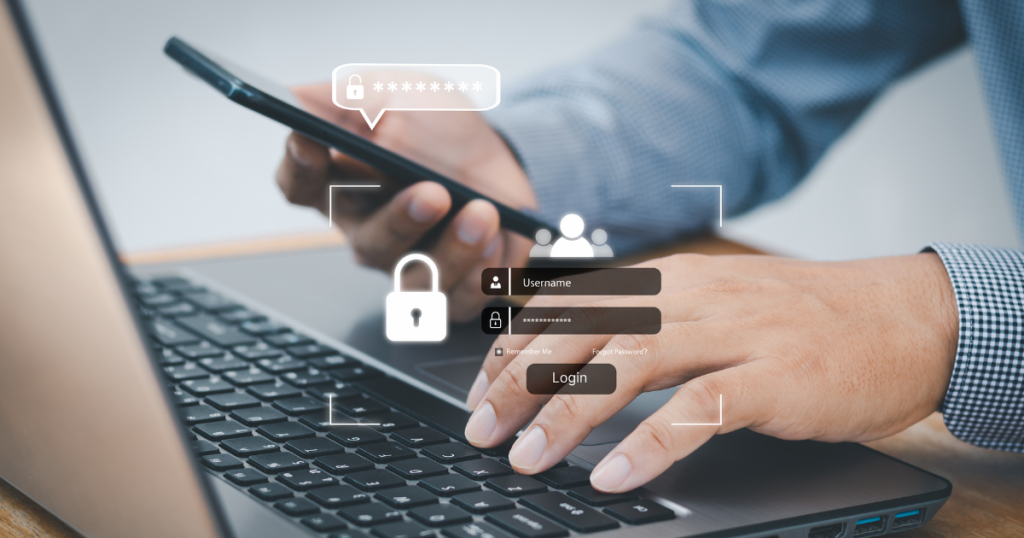Email security is a critical concern for businesses of all sizes, especially in today’s digital age where cyber threats are constantly evolving. With sensitive information being shared over email daily, it’s essential to implement robust security measures to protect against unauthorised access, data breaches, and other malicious activities. This blog will explore seven effective strategies that businesses can use to secure their email communications, ensuring that both internal operations and client interactions remain safe and confidential. From password policies to network security, these tips provide a comprehensive approach to safeguarding your business’s email systems.
1. Implement Strong Password Policies
One of the simplest yet most crucial steps to securing your emails is implementing strong password policies. A weak password can be easily compromised, leading to unauthorised access to your email account and potentially sensitive business information. Strong passwords should be long, complex, and unique to each account. They should include a mix of uppercase and lowercase letters, numbers, and special characters. Encouraging or mandating the use of a password manager within your organisation can significantly enhance security. Password managers generate and store complex passwords, reducing the likelihood of password reuse or simple passwords that are easy to guess
It’s also vital to educate employees about the dangers of using predictable passwords, such as ‘password123’ or birthdays, which are easy targets for hackers. Regularly updating passwords and setting expiration dates can also help in mitigating security risks, ensuring that even if a password is compromised, the access it grants is limited in time.
2. Utilise Two-Factor Authentication (2FA)
Two-Factor Authentication (2FA) is a powerful tool in the fight against unauthorised access. By requiring a second form of identification beyond just a password, 2FA adds an additional security layer, making it significantly more difficult for attackers to gain access to your email accounts. Even if a password is stolen or guessed, the attacker would also need the second factor – typically a temporary code sent to a mobile device or generated by an authenticator app, in order to access the account. For businesses, implementing 2FA across all email accounts is a straightforward yet effective way to bolster security. It’s important to ensure that this second factor is something only the legitimate user has access to, such as a personal smartphone. Encouraging all employees to enable 2FA and providing the necessary tools and training to do so can drastically reduce the risk of email breaches within your business.

3. Use Encrypted Email Services
Encryption is a critical component of email security, ensuring that even if emails are intercepted, they cannot be read by unauthorised parties. Encrypted email services protect the content of your emails by converting them into a coded format that can only be deciphered by someone with the correct decryption key. For businesses handling sensitive information, using encrypted email services is not just a recommendation but a necessity. Encryption should be considered not only for the content of the emails but also for any attachments, which might contain critical business data. It’s also important to communicate the importance of encryption to your clients and partners, ensuring that all parties involved in email exchanges are equally committed to security.
4. Be Aware of Phishing Attacks
Phishing attacks are one of the most common methods cybercriminals use to compromise email security. These attacks often involve emails that appear legitimate but are designed to trick recipients into providing sensitive information, such as login credentials or financial details. For businesses, the consequences of falling victim to a phishing attack can be severe, leading to data breaches, financial loss, and damage to reputation.
It’s crucial to educate employees about the dangers of phishing and how to recognise such attempts. Suspicious emails often contain telltale signs like unexpected requests, urgent language, or unfamiliar senders. Training staff to scrutinise emails and report anything suspicious can prevent these kinds of attacks from succeeding. Additionally, implementing email filters that detect and block phishing attempts before they reach the inbox can further protect your business from these threats. Regularly testing employees with simulated phishing attacks can also be an effective way to ensure that they remain vigilant and prepared.
5. Regularly Update Software and Email
Keeping your software and email up to date is another vital aspect of email security. Software updates often include patches for security vulnerabilities that could otherwise be exploited by hackers. Outdated software is a known target for cybercriminals, as it may contain unpatched vulnerabilities that can be used to gain unauthorised access to your email accounts. Businesses should ensure that all systems, including email, operating systems, and security software, are regularly updated. Automatic updates should be enabled where possible to minimise the risk of human error or oversight.
6. Implement Email Filtering and Anti-Spam Tools
Email filtering and anti-spam tools are essential for maintaining a secure email environment. These tools help to block malicious emails, such as phishing attempts or emails containing malware, before they reach the inbox. By filtering out potentially harmful emails, these tools reduce the likelihood of a security breach occurring. For businesses, implementing robust email filtering is crucial, as it helps protect not only the organisation but also its employees and clients. Modern email filtering solutions use advanced algorithms and machine learning to detect and block threats in real-time, adapting to new and evolving threats as they emerge. It’s important to regularly review and update the filtering rules and settings to ensure they are effective against the latest threats. Additionally, combining filtering tools with regular employee training on email security can further enhance the overall security of your business.
7. Secure Your Network: Business Broadband and VoIP Considerations
Securing the network that your email system operates on is just as important as securing the emails themselves. Business broadband connections and VoIP solutions should be configured with security in mind, ensuring that they do not become points of vulnerability. This includes using strong, encrypted Wi-Fi connections, securing routers and modems with strong passwords, and regularly updating firmware. For VoIP solutions, it’s crucial to ensure that all communications are encrypted to prevent unauthorised access. Implementing a secure network infrastructure helps protect against man-in-the-middle attacks, where an attacker could intercept or alter communications. Regular network security audits can help identify potential vulnerabilities and ensure that your business broadband and VoIP systems are as secure as possible.
Final Thoughts
We hope you’ve found this useful and has offered you a comprehensive overview of the key strategies for securing business emails, providing actionable advice for your business. By following these steps, businesses can significantly enhance their email security and protect sensitive information from cyber threats. Of course here at The One Solution, we specialise in providing bespoke communication solutions that have security at the forefront, and we’d be happy to discuss how our products and services can advance your business. You can contact us for all your business needs here.







